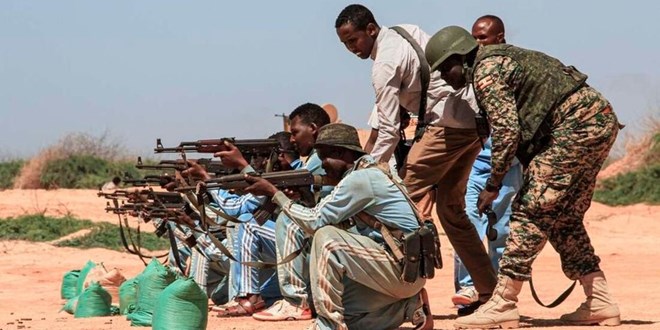African soldiers have been rotating through Somalia for 15 years as part of a 20,000-strong UN mission tasked with protecting the country’s frail central government against an Islamist insurgency.
However, the mission is coming to an end, with a transitional force allocated less than two years to pass over security responsibilities to Somalia’s national army and leave the country. Will it be successful?
– What exactly is AMISOM? –
The African Union Mission in Somalia (AMISOM), established by the United Nations Security Council in 2007, was entrusted with combating Al-Shabaab extremists intent on overthrowing the foreign-backed government in Mogadishu.
The operation, which included Africans from all over the continent, drove Al-Shabaab out of Mogadishu in 2011, allowing for the formation of a government and federal agencies, as well as two rounds of elections.
“AMISOM played a part in securing and providing a conducive environment for politics and for economic activity,” said Samira Gaid, executive director of the Hiraal Institute, a Somalia-based security think tank.
But after the early gains, the mission has mainly been on the defensive.
“There was an opportunity in 2014, 2015, to sustain the offensive and have the upper hand against Al-Shabaab… That opportunity was not taken,” Gaid said.
Unable to rely on Somalia’s poorly-trained and -equipped national army, AMISOM resorted to holding its positions as Al-Shabaab gained ground in rural areas and regrouped to launch deadly attacks across the country
Is it well-known? –
Many of AMISOM’s largest troop donors, like Uganda, Kenya, and Burundi, have a predominantly Christian population, and Al-Shabaab has attempted to portray them as “crusaders” aiming to seize Muslim countries.
Accusations of rape and murder leveled against AMISOM forces added to the public’s mistrust of the international presence in Somalia.
Some countries, including Kenya, with whom the central government has strained relations, have also been accused of using the mission to meddle in Somalia’s affairs, according to the central government.
Mogadishu has never been shy in asserting control over its own security.
However, in a country where Al-Shabaab has the capability to undertake frequent and lethal attacks, AMISOM is essential for defending vital assets and supply routes.
“AMISOM was trapped in a rut where it wasn’t making any progress.”
– What comes next? –
The UN Security Council voted Thursday to replace AMISOM with the AU Transitional Mission in Somalia (ATMIS).
ATMIS has a more offensive remit than its predecessor, and calls for security to be assumed by Somalia’s army and police force by the end of 2024.
Somalia’s government on Friday said it welcomed the decision and was “committed to ensure the transfer of responsibility of security from ATMIS to the Somali security forces.”
Over that time, troops should be gradually withdrawn in four distinct phases coinciding with major ground operations against Al-Shabaab.
Analysts doubt whether the timetable will be kept — AMISOM was initially mandated for six months, and lasted 15 years.
“We’ve seen these same timelines time and time again… those timelines are still contingent on ground conditions, and that’s been the situation for years,” said Mahmood.
There is no big difference between this mission and the last, Gaid said.
“You have the word ‘transition’ which provides hope… to donors that they are coming to the end of paying for this expensive mission,” she said.
“It also gives hope to (the) Somali side that AMISOM is on its last legs.”
ATMIS should prioritise training and equipping Somali forces and investing in security infrastructure, she added.
Is it likely to succeed? –
According to analysts, progress on security cannot be made while the country is stuck in a political impasse.
Elections have been delayed for more than a year, and the process of electing a parliament, which will choose a president, has been hampered by power battles at the highest levels of government and feuds with several states.
Given the uncertainty surrounding the “very controversial” election process, Mahmood believes the ATMIS deadlines are ambitious.
“In order to sustainably implement some of the security dynamics, reconciliation is required,” he stated.
Collaboration on security between Mogadishu and Somalia’s federal states would be necessary to achieve these goals, as would confidence, which is lacking in some circumstances.
According to Gaid, handing over security to Somalia would be a five years, maybe 10″.

